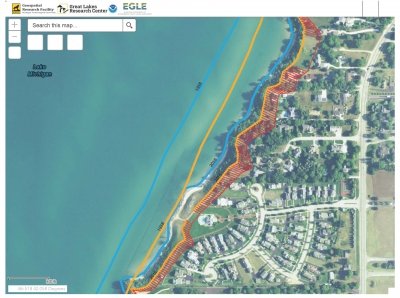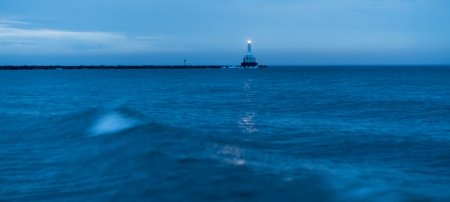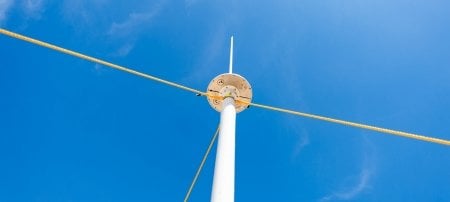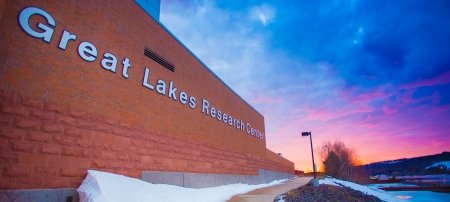Engineer Guy Meadows will discuss Michigan’s lake levels from 1938 to present and inform coastal communities, property owners and community planners at second Michigan High Water Summit town hall April 28.
A second Michigan High Water Summit webinar town hall will focus on Great Lakes shoreline erosion and permitting. Registration is open and limited to 1,000 attendees. The webinar is from 5-6:30 p.m. on April 28. Visit the Michigan Department of Environment, Great Lakes and Energy (EGLE) high water levels website to register for the webinar and for additional information.

Guy Meadows is the Michigan Technological University Robbins professor of Sustainable Marine Engineering and the founding director of the Great Lakes Research Center. His presentation will center on how lake levels have changed in the past 80 years and provide information to coastal communities.
Researchers at Michigan Tech’s Geospatial Research Facility have developed a web portal where anyone can explore shoreline changes along Michigan’s Great Lakes. Also, Meadows recently wrote an article about coastal community resilience for the International Joint Commission newsletter, Great Lakes Connection.
Additional presentations will be made by EGLE staff; Charlie Simon of the U.S. Army Corps of Engineers Detroit District Regulatory Office; Dan Dietz of Dietz House Moving of Muskegon; and Brian Majka of GEI Consultants in Grand Rapids. The first High Water Summit webinar was March 26, and was attended by more than 750 people.
Michigan Technological University is an R1 public research university founded in 1885 in Houghton, and is home to nearly 7,500 students from more than 60 countries around the world. Consistently ranked among the best universities in the country for return on investment, Michigan's flagship technological university offers more than 120 undergraduate and graduate degree programs in science and technology, engineering, computing, forestry, business, health professions, humanities, mathematics, social sciences, and the arts. The rural campus is situated just miles from Lake Superior in Michigan's Upper Peninsula, offering year-round opportunities for outdoor adventure.






Comments